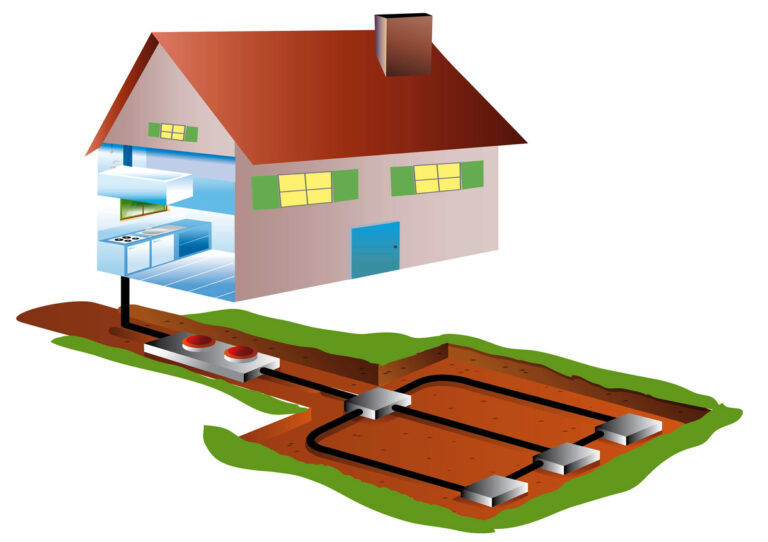Many residents in Charleston, SC, have started to pay closer attention to geothermal HVAC systems. This makes sense, given their efficiency and ability to heat and cool throughout the year by transferring heat from one place to another using the constant temperature of the earth. Here are seven myths about geothermal HVAC systems and explanations of why they’re not based in fact.
1. The Installation Takes Too Long
While the installation of a geothermal HVAC system does involve advance planning, it likely won’t affect your daily routine too much. Our experienced company can handle all of the logistics, which may include performing assessments to make sure everything is ready, obtaining permits from the local municipality and ordering equipment. We will coordinate excavation, drilling and pipe installation while striving to keep the process moving as smoothly as possible.
2. They Cost Too Much Money
These systems tend to be more expensive at the point of purchase, but their efficiency and longevity help offset those costs in the long term. Plus, the federal government and some local municipalities offer tax credits for eco-friendlier systems like these to help homeowners recoup costs.
3. Most Yards Aren’t Large Enough to Handle the Installation
Despite the myth that geothermal systems only work well on large plots of land, many properties can easily handle the installation through the use of horizontal or vertical piping systems. With regard to horizontal systems, we usually install piping about 6 to 8 feet under the ground in properties that are at least half an acre. In contrast, we typically dig several hundred feet into the ground over a narrower area to install vertical piping systems, requiring significantly less square footage.
4. They Don’t Work With Older Homes
Under many circumstances, we can place geothermal systems in homes, regardless of their age. The planning process may take a bit more time for an older home, as we’ll aim to minimize any disruptions to landscaping and work around structures already in place. We’ll either have to connect the new geothermal system to existing ductwork or make modifications as necessary, too, but it’s far from impossible to install one in an older home.
5. They Have a Hard Time in the Winter
Although older heat pumps struggled during wintertime, that’s not the case for geothermal systems. No matter what the external temperature may be, even during the coldest winter days in Charleston, the ground temperature stays around 50 or 55 degrees. The system uses that to its advantage, absorbing some heat from the ground and then releasing it indoors.
6. They Require Too Much Maintenance
All of the components in a geothermal HVAC system receive protection from the elements due to their location underground or indoors, so they can generally last a long time. The recommendations for maintenance don’t differ that much from those associated with traditional ACs and heaters. We advise that you change your filter frequently and schedule tune-ups each year so a technician can ensure that everything works properly by inspecting electrical connections, checking fluids and assessing the condition of various parts.
7. They’re Loud and Disruptive
Fortunately, geothermal HVAC systems generally operate very quietly, as their indoor units produce a low humming noise that might not even be noticeable. Plus, the absence of an outdoor unit means that you won’t hear the system running when you’re spending time in your yard. The sound coming from one of these systems, under normal circumstances, probably won’t disturb anyone in your home and certainly won’t disturb your neighbors.
Despite the myths you may have heard, a geothermal HVAC system offers a practical and efficient solution for heating and cooling your home. If you’d like to install geothermal HVAC at your place in Charleston, give us a call at M & B Heating and Air.
Image provided by iStock


